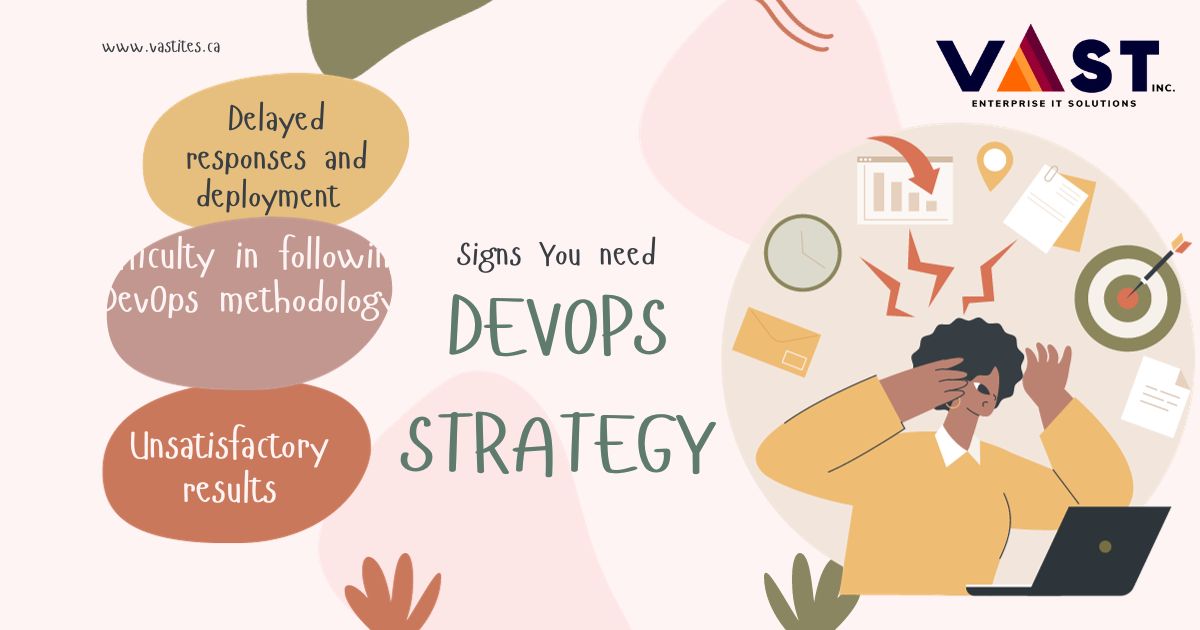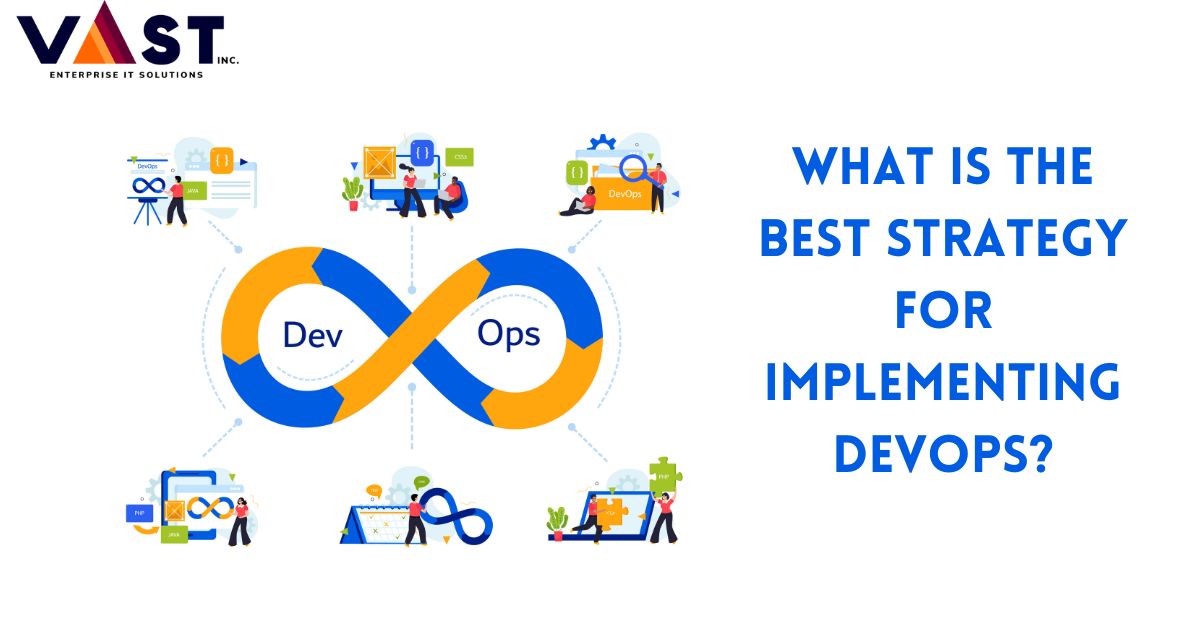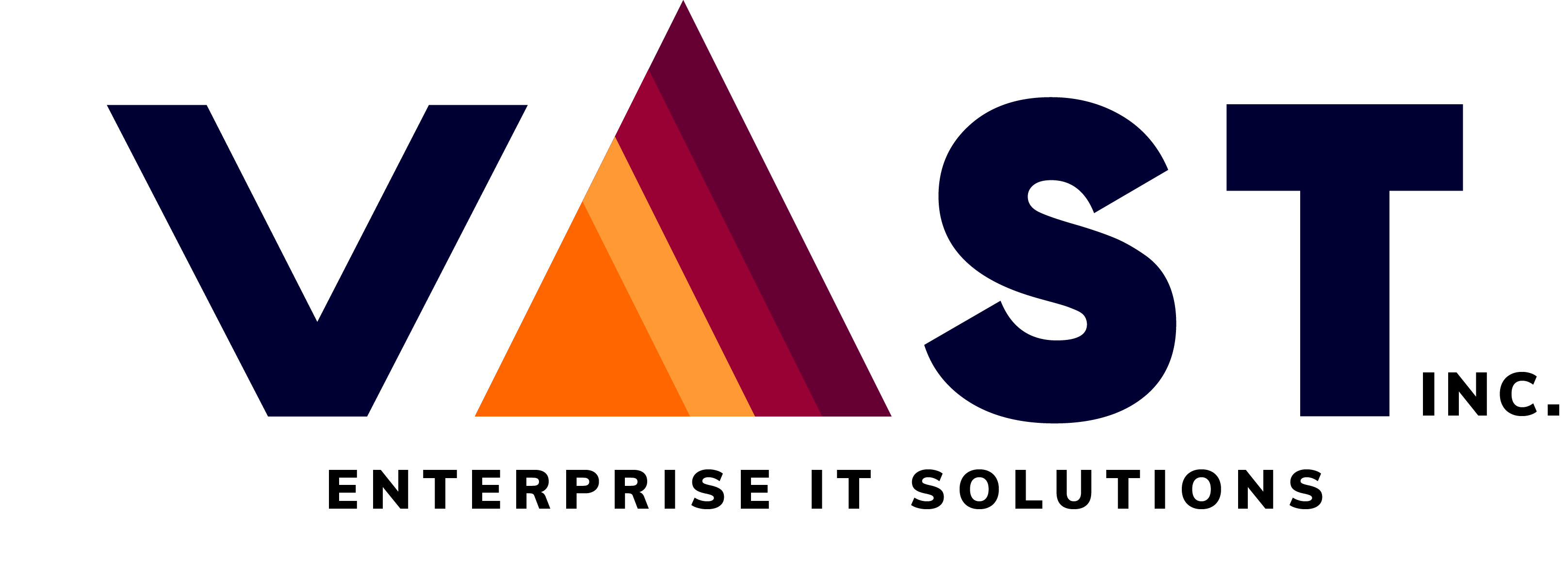
- September 27, 2023
- vastadmin
- 0
Introduction
In a time when tech advancements are quickly reshaping the way businesses operate, many are asking, “What is the best strategy for implementing DevOps?” For today’s companies, having a solid DevOps plan is no longer just a ‘nice-to-have’; it’s an imperative. Quickness, operational effectiveness, and high-quality output are now fundamental to business success, and that’s precisely what a well-implemented DevOps strategy delivers. This article aims to clarify the crucial role of DevOps strategies and offers a guide on how to set up your own successful roadmap for implementation. We’ll also contrast the traditional and modern approaches to DevOps to highlight the evolution and significance of this methodology in today’s tech-driven world.
Why do you need a DevOps Strategy?

DevOps is a methodology that focuses on collaboration between the Development and Operations teams to make the process and delivery of applications agile and smoother.
IT industrialists over time have realised that there is more to it than just developing software and applications. The most important part of developing software is to deliver it on proper time and make it run seamlessly. That is why they adopted the agile methodology. The traditional agile teams only focussed on code-produced shipment and development teams focussed on the maintenance of the application.
This is where DevOps comes into the picture. The DevOps strategies are just the perfect solution to achieve the organizational goals. While many organizations incorporate DevOps seamlessly, numerous organizations fail. Why the failure you may think, is because the organizations that successfully adopt the DevOps methodology have created a perfect strategy.
Signs that you need a DevOps strategy

The failures and difficulty in adapting the DevOps strategy have created a need for a DevOps strategy. Here are the signs why you need a DevOps strategy:
Delayed responses and deployment
Agile responses and deployment are advantages that you need to stay ahead of your competitors. Implementing DevOps helps you to release software in smaller batches and on shorter deadlines. This gives businesses time and flexibility to respond as they arise. This decreases the time to market and agility.
Difficulty in following DevOps methodology
There are 6 C’s in DevOps: Continuous Integration, Continuous Deployment, Continuous Delivery, Continuous Testing, Continuous Operations, and Collaboration. Organizations always tend to focus on automation of workflows, but face difficulties in following it. This indicates a lack of a proper DevOps strategy
Unsatisfactory results
One of the major reasons organisations face failure is because of manual integration, inconsistency of processes, low-quality code and unsupervised configurations.
This calls for a need for an expert to guide you to implement DevOps properly. VaST ITES Inc. is the best DevOps Consulting in Toronto. Contact them to know more.
What is the best Strategy for implementing DevOps?

Understand your needs
The first and foremost step is to understand what your company needs. Identify in which departments DevOps needs to be implemented. Assess your current state and pre-DevOps conditions. Analyze the problems you are facing and study how DevOps can be the solution for them.
Adapt to a DevOps mindset. Look at different sets of options. Set common goals that all the team members can achieve.
Select the right cloud service provider
The key to successfully implementing a DevOps strategy lies in establishing a strong, secure foundation for your software or app. It’s crucial to partner with a reliable cloud service provider who can advise you on the most suitable cloud setup for your specific needs.
You can find the best cloud service provider in Toronto here.
Create Robust IT architecture
Mapping and designing a perfect software architecture is a crucial step for implementing a DevOps strategy. It makes the other processes of software development flow seamlessly.
Select the right set of DevOps tools
Selecting the right set of DevOps tools will make your environment robust, customise the workflows and make the deployment smooth. You may select DevOps tools according to your needs and what’s best for your application.
Continue reading, Best Tools to learn DevOps →
Establish Container Orchestration
DevOps Orchestration has changed the dynamics of platforms and increased its efficiency beyond. Docker is one of the best tools for containerization. However, implementing Docker makes it vital to implement the orchestration tool as well. This is where container orchestration comes into the picture. Tools like Amazon ECS, EKS, and Kubernetes enhance the management of containers and enable other tasks.
Secure your architecture
Securing your DevOps environment is a crucial step for implementing the DevOps strategy. You need to ensure to secure your DevOps technology, processes, policies and strategies. Companies need to embed security in different phases in DevOps lifecycle.
Test and Alter
DevOps is all about what is best for you. You need to continuously test and integrate according to the changing environment. Appoint a DevOps team who can look after the processes and product delivery.
An ideal DevOps team consists of essential 6 roles. It includes DevOps evangelist, Code Release Manager, Automation Architecture, Experience Assurance Expert, Software developer, and Security and compliance engineer.
VaST ITES Inc. has a vast development team to ensure seamless integration of DevOps pipelines. Whether you are just starting with the process or whether you are at the deployment stage, VaST ITES Inc.’s expert team can help you implement an extensive DevOps strategy.
Now that you know what is the best strategy for implementing DevOps, sure there will be challenges and problems while implementing it. Check out this video to learn how to solve the problems faced while implementing a DevOps strategy.
Traditional vs New way of implementing DevOps
DevOps is a decade-old technology and we have come a long and evolved this technology over time. DevOps and cloud became the primary way to build and deploy software and applications. This came with many changes and new technologies. Let us understand the difference between traditional and new ways to implement DevOps.
- Earlier only software was built and shipped, but now with the help of DevOps services are run.
- In the traditional method, the producer only focused on the features. But now they own operational results with product features.
- In the old way the development of features was done, with DevOps services are never done until they are turned off.
- In the traditional way, the Developer must go through Operations to get work done, but now Ops enables Devs to get the work done.
- Earlier each silo owned its own area, now all the groups are focused on the satisfaction of the end user.
- Earlier only Ops was used to monitor applications, over time with DevOps, Ops provided tools to Devs for operations applications.
- In the traditional way, customers were isolated from each other. New ways focus on a more collaborative culture and promote multi-tenancy and shared resources.
- In the old ways, application services were shared among each other through a common platform and structure. In the new modern way, services are distributed on isolated instances and hardware independencies.
Conclusion
What is the best way for implementing DevOps strategy? The solution isn’t as simple as one might assume. It requires a comprehensive plan that includes assessing your organization’s unique requirements, choosing an appropriate cloud service provider, developing a solid IT framework, and ongoing adjustments to your operations. This isn’t just a matter of picking up some tools and automating tasks; it signifies a fundamental organizational shift towards teamwork, efficiency, and perpetual refinement. In this article, we’ve outlined essential factors to bear in mind when constructing your DevOps game plan, hazards you should steer clear of, and the distinctions between modern and conventional DevOps methodologies. With a well-thought-out strategy, your organization won’t merely get by—it will flourish even in a highly competitive market. So, don’t delay; take the steps needed to craft your DevOps strategy and experience the transformative power of effective DevOps implementation.
